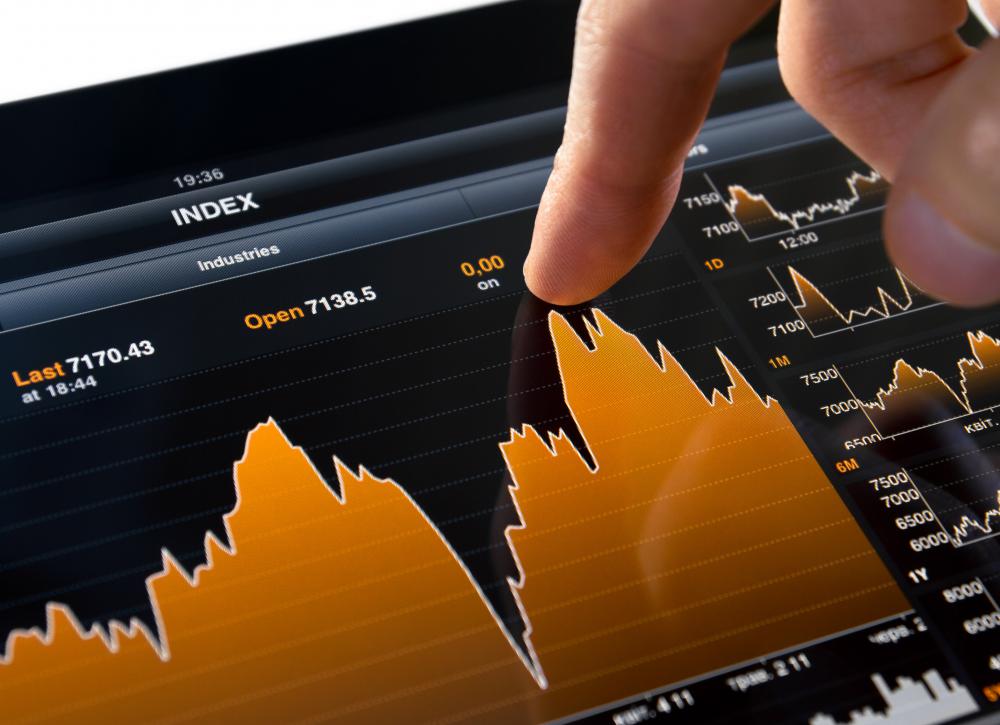At SmartCapitalMind, we're committed to delivering accurate, trustworthy information. Our expert-authored content is rigorously fact-checked and sourced from credible authorities. Discover how we uphold the highest standards in providing you with reliable knowledge.
What is a Financial Market?
A financial market is the all-encompassing term that covers the buying and selling of monetary goods. The financial market consists of the primary and secondary markets, which define the origin of the monetary good, and a wide selection of markets that define the type of monetary good. Some of the more well-known submarkets within the financial market are the stock, commodities and money markets. In most cases, the buying and selling of items on the financial market have little to no physical component beyond the receipt for the sale.
The cornerstone of the financial market is the movement of money, often by way of capital or raw material. One party, the seller, has a monetary good, and one person, the buyer, wants it. The two parties perform a monetary exchange where the seller receives something that he hopes is worth more than what he sold. The two parties may receive actual money, stocks for a company or even another person’s debt marker.

In the primary market, the original owner of the item is selling it. In most cases, an item is only sold in the primary market the first time it changes hands. The secondary market is for the selling of monetary goods by people unrelated to the original issuer. For example, a person forms a public company and sells his stock on the primary market—the buyers of that stock then turn around and resell it to other people on the secondary market.
In addition to the origin markets, the financial market has several markets that are defined by the types of monetary goods they sell. The capital market, which is itself made up of the stock market and the bond market, governs the selling of corporate assets and debt. The commodities market oversees the buying and selling of raw materials, a process closely related to the futures market, where potential monetary goods are bought and sold. Money markets handle transactions involving pure money, such as government bonds or foreign currency.
In most cases, people buying and selling items in financial markets have little interest in the actual products they are purchasing. The entire exercise is a method of increasing money through applied supply and demand. When a person purchases soybeans on the commodities market, he rarely expects a shipment of soybeans to appear at his home. The investor simply wants a ticket saying there is an amount of soybeans somewhere in the world that belongs to him. That ticket can then be sold for a profit at a later time.
AS FEATURED ON:
AS FEATURED ON:











Discuss this Article
Post your comments